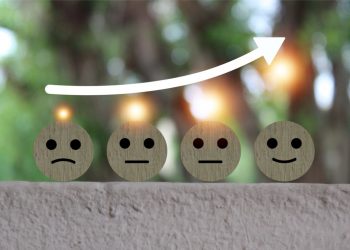 RISMEDIA, March 7, 2008-SleepBetter.org, an educational sleep resource website, offers studied tips on successfully adjusting to the new sleep schedule imposed by the Daylight-Saving Time shift approaching on March 9, Sunday, at 2 a.m., Americans will turn the clock ahead and lose one hour of sleep-making the morning routine, work commute and Monday meetings that much more difficult. However, according to the well-rested minds behind SleepBetter.org, the time change needn’t be traumatic.
RISMEDIA, March 7, 2008-SleepBetter.org, an educational sleep resource website, offers studied tips on successfully adjusting to the new sleep schedule imposed by the Daylight-Saving Time shift approaching on March 9, Sunday, at 2 a.m., Americans will turn the clock ahead and lose one hour of sleep-making the morning routine, work commute and Monday meetings that much more difficult. However, according to the well-rested minds behind SleepBetter.org, the time change needn’t be traumatic.
“Recent research suggests, we’re not good at adjusting to the time change naturally. Daylight-Saving Time, which affects a quarter of the world’s population and entails a one-hour change twice a year, reflects a change in social clocks-not biological ones,” explains Dr. Michael J. Breus, a nationally recognized sleep expert and contributor to the SleepBetter.org website. “New studies are showing that we don’t actually adjust to these changes in time so easily-especially ‘springing-forward’.”
Sleep Deprivation has Noticeable Consequences
Losing just one hour of sleep can disrupt the body’s circadian rhythm, potentially disrupting sleep patterns and affecting daily activities, due to sleep deprivation. This situation results in slower thinking and reaction time, as evidenced by the increase in auto accidents in the two days following the Daylight-Saving Time shift-more than on any other day of the year. Moodiness and exhaustion are also common, which can lead to fatigue and irritability. And for parents, this loss of sleep can wreak havoc on children’s natural sleep systems, which is why the experts at SleepBetter.org are offering the following five tips for gaining a good night’s sleep despite the time change:
Schedule Gradual Sleep Adjustments – Make sure your sleep schedule is regular for Tuesday, Wednesday, and Thursday. On Friday, Saturday and Sunday go to bed 30 minutes earlier than normal. A regular schedule let’s your brain know when it is supposed to sleep.
Take no naps over the weekend.
Make Sure Your Pillow Allows For Optimal Sleep – Using a supportive and clean pillow that is properly suited to individual sleep needs is necessary for getting the healthy sleep every body needs. Sites like SleepBetter.org offer a Zzzz ScoreTM test to help identify individual sleep scores and needs.
Avoid Caffeine, Nicotine and Alcohol – Caffeinated beverages can create a “buzz” within the body, suppressing deep sleep. While alcohol may make you sleepy, it will not let you sleep deep. Try to avoid it this weekend. Cut out intake of these items within three hours of bedtime.
Exercise 30 Minutes Each Day – Regular exercise relieves tension, uses excess energy and helps the mind unwind after a hard day at work, allowing for restful, uninterrupted sleep.
Make the Bedroom a Haven, Not a Workspace – A quiet, dark and cool bedroom is the perfect haven for sleep. For a more restful sleep, put work aside for two to three hours prior to sleeping, and remove distractions such as television, computers, video games and bright light. Consider a “Power Down Hour” using meditation and relaxation for 20 minutes before bed.
The Daylight-Saving Time change may be just days away, but there is still time to ensure that the shift does not negatively impact personal sleep schedules and daily routines. By following just seven simple tips, adults and children alike can ease gradually into the change and go about their lives with little to no additional stress.
For more tips on sleep improvement, visit www.SleepBetter.org.
Michael J. Breus, Ph.D., is a Clinical Psychologist and a Diplomate of the American Board of Sleep Medicine.










